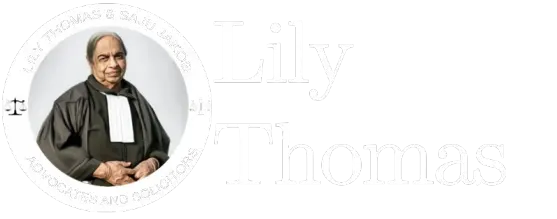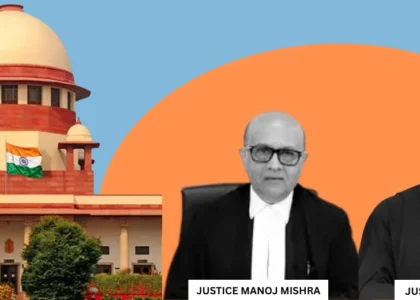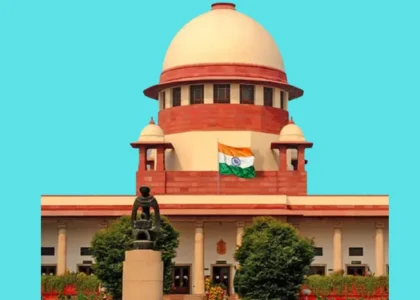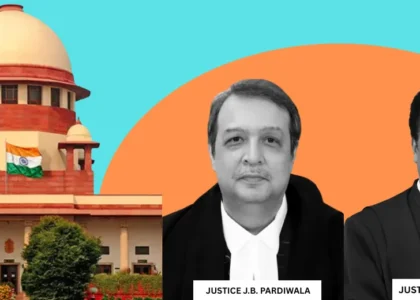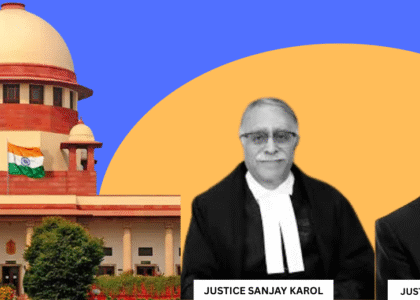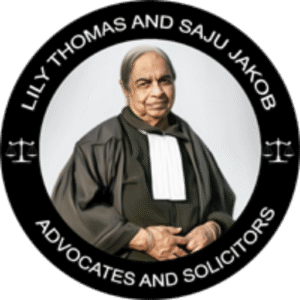Case Title:- M/s. Lancor Holdings Limited vs Prem Kumar Menon and others
Citation:- 2025 INSC 1277
Date:- 31.10.2025
Hon’ble Supreme Court Bench:- JUSTICE SANJAY KUMAR and JUSTICE SATISH CHANDRA SHARMA
The Hon’ble Supreme Court clarified that while mere delay in pronouncing an arbitral award does not invalidate it, an inordinate and unexplained delay making the decision ineffective or unworkable can render the award void. The Hon’ble Court further held that an award lacking consequential relief and forcing parties to seek redress again in court is contrary to public policy and therefore unenforceable.
The case arose from a 2004 Joint Development Agreement (JDA) between Lancor Holdings Ltd., a property developer, and landowners led by Prem Kumar Menon, under which both parties were to share the constructed property equally. A dispute emerged over whether construction was completed as per contractual terms, after the developer executed sale deeds for its 50% share using a power of attorney held in escrow.
The dispute was referred to arbitration before a retired High Court judge, who reserved the award in July 2012 but pronounced it nearly four years later, in March 2016, without any explanation. The arbitrator declared the developer’s sale deeds void but granted no effective relief, forcing both parties to re-litigate the same issues.
The Hon’ble Court delivering the judgment, held that the arbitrator’s unexplained delay and failure to resolve the dispute violated the public policy of India. The Court termed the award “rudderless” and “futile,” emphasizing that arbitration is meant to provide time-bound dispute resolution, not prolonged uncertainty. Exercising its powers under Article 142 of the Constitution, the Hon’ble Supreme Court declined to remand the matter for fresh arbitration. Instead, it validated the developer’s 2008 sale deeds (despite procedural lapses) to avoid further litigation, imposed a penalty of ₹10 crores (including forfeiture of ₹6.82 crores and ₹3.18 crores compensation to landowners), and directed the parties to take possession of their respective shares—thus bringing final closure to a dispute pending since 2004.
The Hon’ble Court addressed two important questions:
- What is the effect of undue and unexplained delay in the pronouncement of an arbitral award upon its validity? While answering the first questions that what is the effect of undue and unexplained delay in the pronouncement of an arbitral award upon its validity, The Hon’ble Court held that
“Delay in the delivery of an arbitral award, by itself, is not sufficient to set aside that award. However, each such case would have to be examined on its own individual facts to ascertain whether that delay had an adverse impact on the final decision of the arbitral tribunal, whereby that award would stand vitiated due to the lapses committed by the arbitral tribunal owing to such delay. It is only when the effect of the undue delay in the delivery of an arbitral award is explicit and adversely reflects on the findings therein, such delay and, more so, if it remains unexplained, can be construed to result in the award being in conflict with the public policy of India, thereby attracting Section 34(2)(b)(ii) of the Act of 1996 or Section 34(2A) thereof, as it may also be vitiated by patent illegality. Further, it would not be necessary for an aggrieved party to invoke the remedy under Section 14(2) of the Act of 1996 as a condition precedent to lay a challenge to that delayed and tainted award under Section 34 thereof.”
- Is an arbitral award that is unworkable, in terms of not settling the disputes between the parties finally but altering their positions irrevocably thereby leaving them no choice but to initiate further litigation, liable to be set aside on grounds of perversity, patent illegality and being opposed to the public policy of India? If so, would it be a fit case for exercise of jurisdiction under Article 142 of the Constitution? Answering the issue, the Court observed:
“The very basis and public policy underlying the process of arbitration is that it is less time-consuming and results in speedier resolution of disputes between the parties. If that premise is not fulfilled by an unworkable arbitral award that does not resolve the disputes between the parties, on one hand, leaving them with no choice but to initiate a fresh round of arbitration/litigation but the arbitrator, in the meanwhile, also changed their positions, irrevocably altering the pre-existing balance between the parties prior to the arbitration, then such an arbitral award would not only be in conflict with the public policy of India but would also be patently illegal on the face of it. It would therefore be liable to be set aside under Section 34(2)(b)(ii) and/or Section 34(2A) of the Arbitration and Conciliation Act, 1996. Further, if the necessary conditions for exercise of power by this Court under Article 142 of the Constitution of India are made out, in terms of the Constitution Bench decision in Gayatri Balasamy vs. ISG Novasoft Technologies Limited (supra), this Court would be justified in exercising such jurisdiction.”

